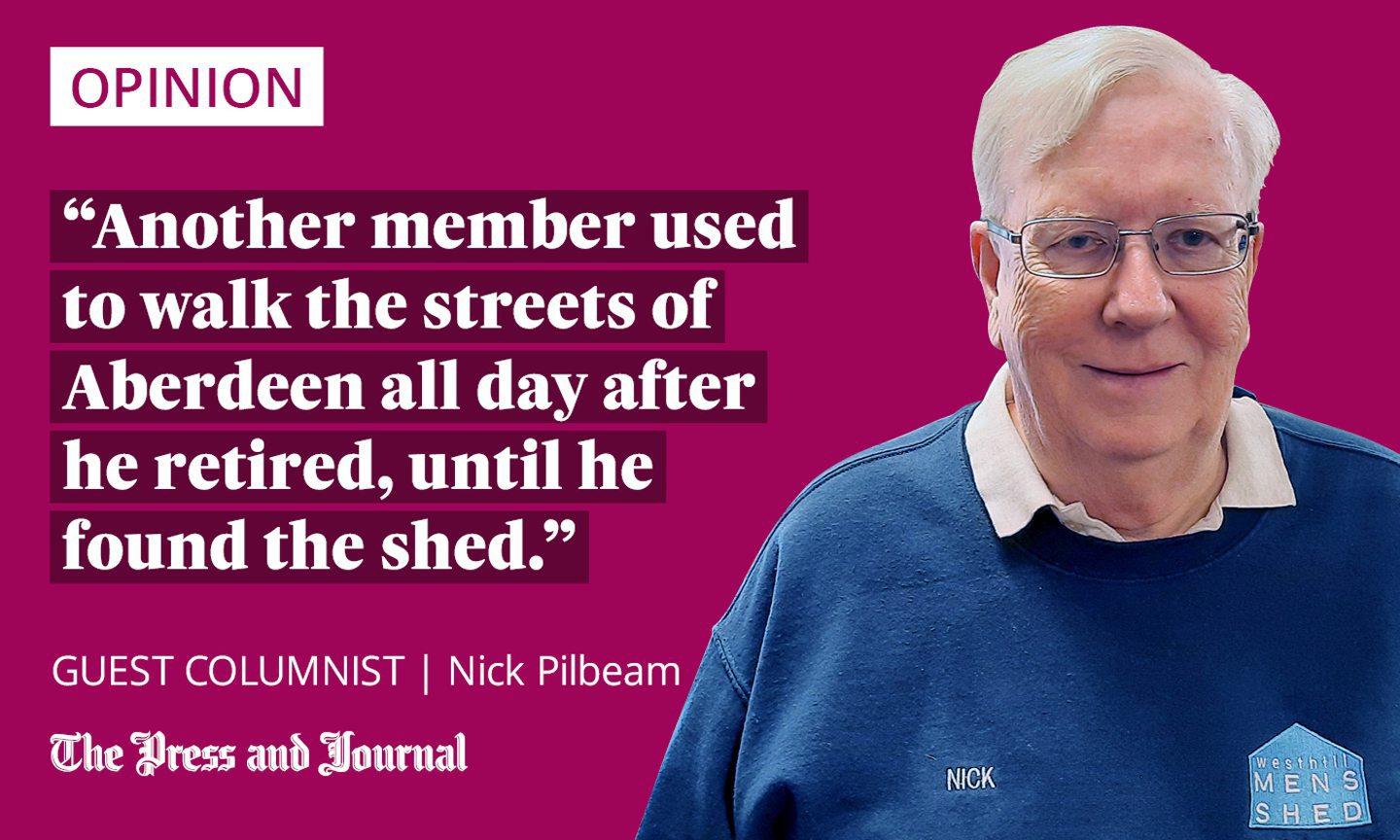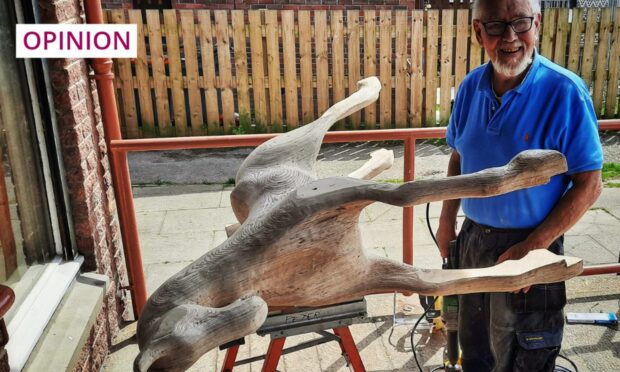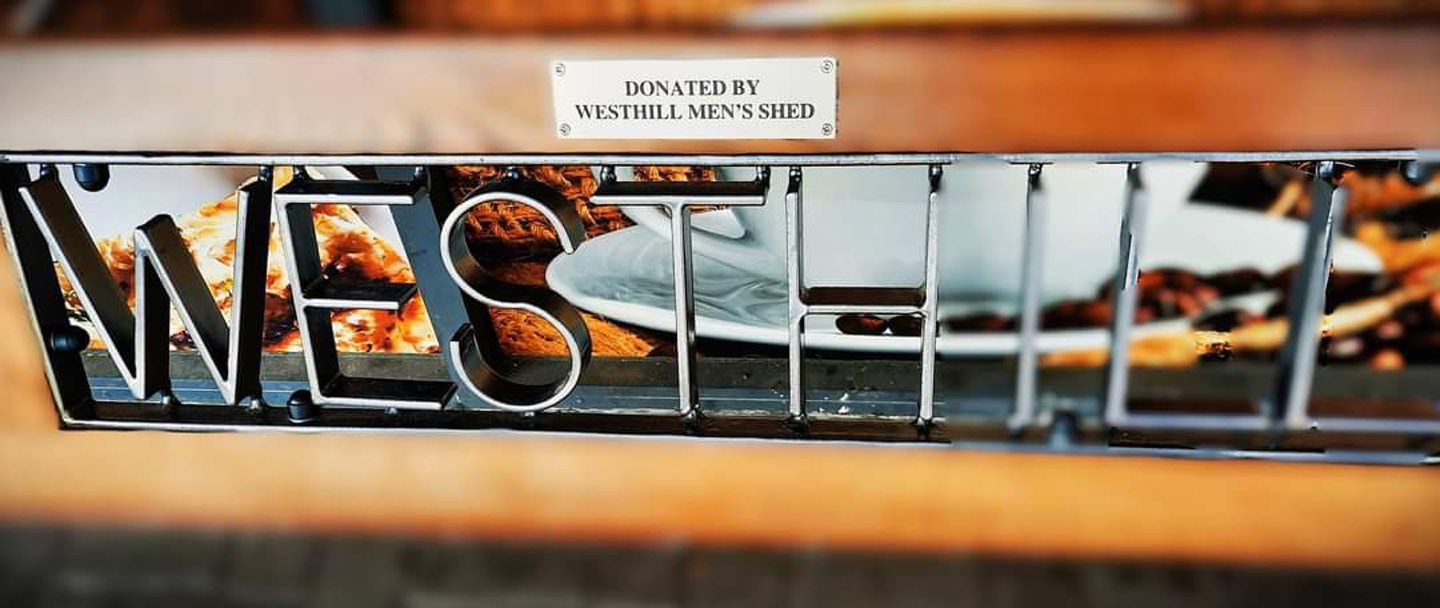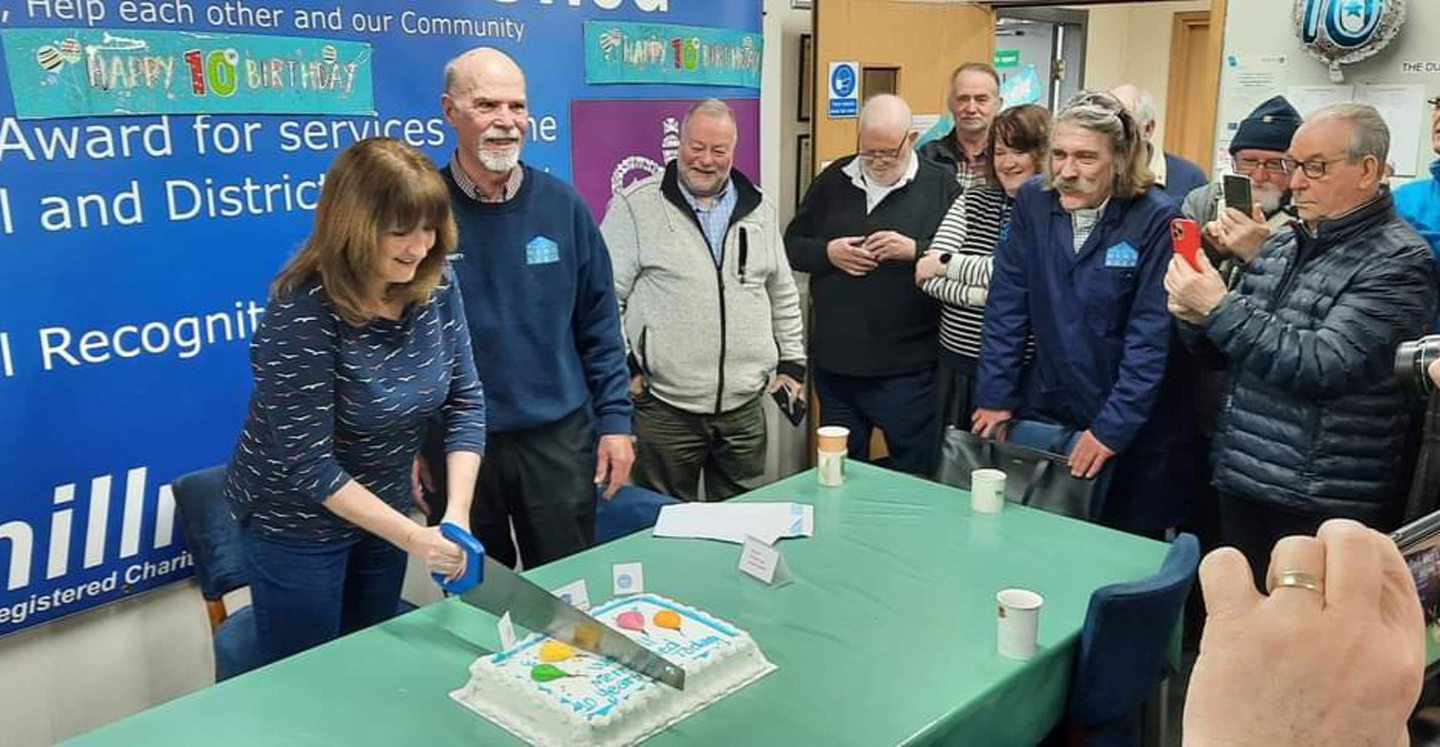In the early-2000s, doctors in Westhill were reporting an increase in depression among older men.
This seemed to be related to retirement, bereavement, or loss of contact with their social group. It’s a common problem with men, as they do not make new friends easily.
The community development team at Aberdeenshire Council was thinking about what could be done, when one of the officers came across the concept of Men’s Sheds. Fired up, she proposed starting one in Westhill – the first in Scotland.
As soon as you say “Men’s Shed“, people get the idea – like a shed at the bottom of the garden where men repair and make things. Make this a community space, and it is an ideal opportunity for men to go and socialise.
We made some decisions. We would follow the Australian model (where the idea originated) and create a wood workshop. We would form an independent charity. And we would see how it went.
What we found was that a lot of people from the oil industry wanted to join and, being engineers, wanted to do metal work, electronics, 3D printing. We rapidly opened up an engineering workshop where we repair garden tools – many lawnmowers and strimmers.
Selling both repaired garden tools (which were saved from landfill) and bespoke wooden items commissioned by the community proved to be a successful business model – although we are a charity, we still have to pay the bills.

The members benefit and enjoy the banter and camaraderie. One member whose wife had cancer was very depressed, but she encouraged him to come to the shed. He had been in the Navy on the Arctic convoys during the Second World War, and entertained us with many tales of his experiences.
He did a lot of good work for the shed and said that he forgot about all his aches and pains when there. We were able to help find him a place in a care home, and he continued to come to the shed.
Another member used to walk the streets of Aberdeen all day after he retired, until he found the shed. He now has a warm place to be and people to talk to. He is very enthusiastic and works hard.
We have a huge range of backgrounds: head teacher, CEO of a small company, offshore engineer, insurance salesman, vehicle repair shop worker, fishmonger, sea captain, and hundreds more.
Working in the community, we found many women wanted an opportunity to come to the shed and learn DIY. They wanted to be able to put up shelves and so on, but no one had shown them how. A greatly successful Sheshed now runs in Westhill and, after five years, they are starting to gain confidence and contribute to shed income.
As we became more successful, we had to add a Portakabin for our social area. This was installed and ready for use on the day the first Covid lockdown happened. So, we locked up that day and left it for a couple of years!
Independent sheds financially organise and support themselves
The way we began, setting up our shed as an independent charity, has been adopted by groups throughout Scotland. It means that the local trustees manage the sheds and their finances. So, it was a great surprise to learn that delayed funding for the Scottish Men’s Sheds Association was supposedly going to result in individual Scottish sheds closing down.
This inaccuracy caused a lot of unnecessary worry in Men’s Shed communities, from Westhill to Shetland, and we had to spend a lot of time calming the situation down and explain why it was not true. Our model of independent sheds was intended to stop this happening.
After the Westhill Men’s Shed started, the council continued with some funding and sponsored an officer to roll out more sheds in Aberdeenshire. From Westhill, we did not have the restriction of funding only going to Aberdeenshire, so we helped many all over the world to start sheds. Most were in other parts of the UK – Fort William, Barrhead, Helensburgh, Dyce, Yell, Isle of Man, Norwich. Our furthest were Michigan and Hawaii.
From this grew the Scottish Men’s Sheds Association. Its main success was encouraging other sheds to start up, so that we are now approaching 200 being either active or in the process of opening in Scotland. Each follows the independent funding model and some, like Westhill, get most of their funds from work done in the shed, for the benefit of the community.
Others have smaller memberships or are less able to create their own funds, so depend more on grant funding – some from the NHS (as the NHS recognises the benefit to the community). The benefit extends not only to the members of the Men’s Sheds, but also their families and friends. Loved ones recognise the value of an improved outlook on life from members, and encourage them to go to the shed.
Nick Pilbeam is chairman of Westhill Men’s Shed



Conversation